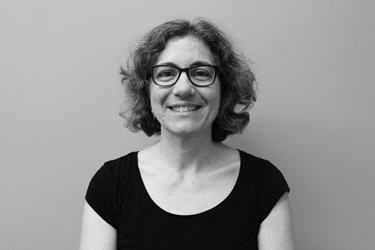
By Lisa Ranghelli, National Committee for Responsive Philanthropy
In September, the Aspen Institute Forum for Community Solutions and Neighborhood Funders Group convened 100 local, regional, and national funders for Towards a More Resilient Place: Promising Practices in Place-Based Philanthropy. Here, Raquel Gutierrez of Vitalyst Health Foundation reflects on where the culture in foundations needs to evolve to match developments in the field.
 “Relationships develop at the speed of trust” was an oft-repeated truism spoken at the place-based philanthropy conference Towards a More Resilient Place, co-hosted by The Aspen Institute Forum for Community Solutions and Neighborhood Funders Group. Yet very quickly conference speakers seemed to signal their trust of other participants by taking the conversation to a deep and personal level.
“Relationships develop at the speed of trust” was an oft-repeated truism spoken at the place-based philanthropy conference Towards a More Resilient Place, co-hosted by The Aspen Institute Forum for Community Solutions and Neighborhood Funders Group. Yet very quickly conference speakers seemed to signal their trust of other participants by taking the conversation to a deep and personal level.
During the opening plenary on the topic of “community resilience” panelists reminded us that there’s personal hurt from injustice and that resilience is a double-edged sword. When communities suffering from decades of racism and disinvestment are described as “resilient,” it almost implies that they can keep enduring under that mantle of oppression for years more, perhaps allowing further complacency by those with the power and resources to do something about it. As one leader said, “The New Orleans community wants to be made whole, not just resilient.”
Another funder noted wryly that “Philanthropy loves a crisis,” but longstanding inequities are just as much a crisis as the Flint water situation. Several grantmakers described how crises both immediate and long-term caused them to look at their impact to date and conclude that their status quo grantmaking approach was no longer an option. In embarking on new paths these philanthropic leaders entered into “tough conversations” and opened themselves to critical feedback from the communities they seek to benefit. This included examining their own institution’s role in creating or perpetuating inequity. And it meant grappling with what Sarah Eagle Heart, CEO of Native Americans in Philanthropy, called philanthropy’s “hesitancy to learn a worldview that is not the majority worldview.”
Part of learning a new worldview is realizing that philanthropy should not always be creating or setting the “table” for community engagement and problem solving, but rather should find out what tables already exist in the community and ask whether and how it can be part of those tables. We often talk about “building the capacity of communities and residents to be at the table” but don’t reflect on what capacities philanthropy needs to be at community tables, like the capacity to understand other worldviews and one’s own privileged perch.
Philanthropy already has the capacity, but not often the willingness, to take risks. This convening attracted grantmakers who are willing to experience profound discomfort in their quest to break out of the traditional philanthropic mold of RFPs and competitive grant processes. In doing so, they seek to relate from a place of love, not fear. They are often met with confusion, caution and distrust from community leaders initially, which is understandable after decades of burned bridges and failed expectations between foundations and many communities. Relationships develop at the speed of trust.
Leticia Peguero, Executive Director of the Andrus Family Fund, urged us all to embrace a hashtag call to action: #hayotraforma (#thereisanotherway). It is the way of vulnerable, authentic relationships; of more agile, community-led grantmaking; of disruptive approaches that challenge oppressive economic and political structures.
This conference experience and my colleague Caitlin Duffy’s recent blog post have challenged me to examine my own privileged perch as a white, middle class woman who wants to support racial and economic justice. How am I getting outside of my comfort zone in this work? What are the opportunities for me to take more risks?
I don’t yet know the answers. But I know there is another way. It won’t be an easy one, but it will be more likely to lead to personal and social transformation.
Lisa Ranghelli is senior director of assessment and special projects at the National Committee for Responsive Philanthropy (NCRP), where she leads Philamplify, an initiative that combines expert assessment and critical stakeholder feedback to improve grantmaking practices and boost equitable outcomes in communities. Follow @lisa_rang and @NCRP on Twitter